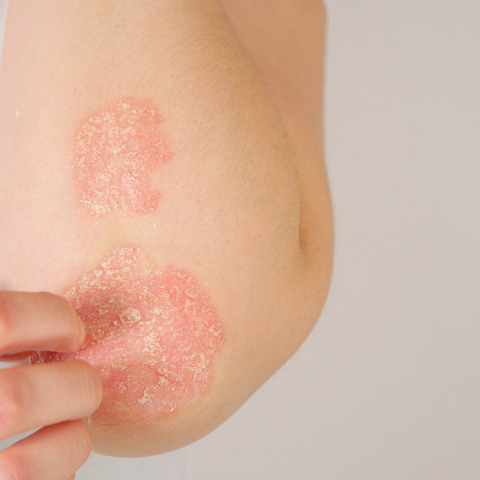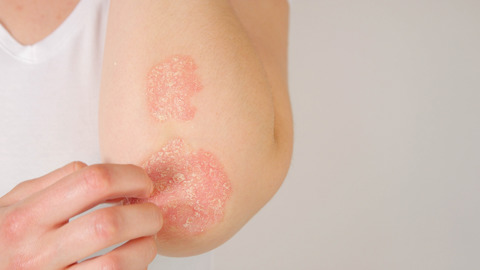
DRWF Research: Childhood diabetes could be treated with skin disease drug
Studies find that medication more commonly used to treat skin condition psoriasis could be effective in treating type 1 diabetes in children and young adults.
Researchers at Cardiff University have found that a drug currently used for the treatment of psoriasis, Ustekinumab, could be effective in treating the early stages of type 1 diabetes in children and young people.
Studies suggested that treating this patient group with Ustekinumab could mean insulin injections might be delayed or prevented entirely.
The study, funded by a National Institute for Health and Care Research (NIHR) and Medical Research Council (MRC) partnership, found that Ustekinumab, a drug used to treat psoriasis since 2009, is effective in preserving the body’s ability to produce insulin in type 1 diabetes.
Researchers believe their findings, recently published in Nature Medicine, could bring the goal of managing this form of diabetes without insulin a step closer.
Lead author on the study Dr Danijela Tatovic, previously received a DRWF Pump Priming award in 2018.
Dr Tatovic, Clinical Senior Lecturer at Cardiff University School of Medicine, said: “Type 1 diabetes occurs when the body’s immune system attacks and destroys the cells of the body that produce insulin. This eventually leaves the person dependent on insulin injections. Researchers are now developing ways to slow or halt the immune system attack. If such treatments can be started early, before all the insulin making cells are lost, this could prevent or reduce the need for insulin.”
The study included findings from Dr Stephanie Hanna’s DRWF-funded research looking into the treatment of severe insulin resistance for people living with type 1 diabetes.
Dr Hanna, a research associate at the School of Medicine at Cardiff University, was awarded the DRWF Professor David Matthews Non-Clinical Fellowship in 2021.
Read an interview with Dr Hanna on her work here

Ustekinumab is an injection treatment which patients give themselves at home once every 2 months.
It has been used effectively in the treatment of more than 100,000 patients with immune conditions, ranging from arthritis to inflammation of the bowel in addition to psoriasis and shown to have very few side effects.
Following more than a decade of research, including studies conducted at King’s College London and the University of Calgary, researcher decided to test this treatment in type 1 diabetes.
The London team, led by Professor Timothy Tree discovered that auto reactive T-cells in people with type 1 diabetes secrete cytokines, proteins that act as messengers to the immune system, interferon-gamma (INF-g) and interleukin 17 (IL-17).
While these cytokines can protect the body from threats, when misdirected, they are toxic to beta cells that make insulin, that can lead to type 1 diabetes.
This is the first time Ustekinumab has been tested in a controlled clinical trial in type 1 diabetes.
Professor Tree, King's College London, said: “We have found that Ustekinumab reduces the level of a tiny group of immune cells in the blood called Th17.1 cells. These cells make up only 1 in 1000 of blood immune cells, but they seem to play an important role in destroying insulin producing cells. This explains why Ustekinumab has so few side-effects. It targets the trouble-making cells, while leaving 99% of the immune system intact – a great example of precision medicine.”
The study by Cardiff University, King’s College London, Swansea University and the University of Calgary, tested the psoriasis treatment in 72 young people between the ages of 12 and 18 treated within 100 days of being diagnosed with type 1 diabetes including participants recruited from four London hospitals (Barts Health NHS Trust, St George’s, University College London Hospital and The Evelina Children’s Hospital).
After 12 months of using Ustekinumab, the researchers found that C-peptide levels – a measure of the body’s ability to make insulin – were 49% higher compared to those taking a placebo treatment. The treatment was found to be very safe, with no more side-effects than the placebo injections.
Professor Colin Dayan, Clinical Professor at Cardiff University’s School of Medicine, said: “We tested this treatment in children and adolescents who already needed insulin treatment. It would be better if we could treat at an earlier stage, while the children are still well and prevent them needing insulin. Thankfully, Ustekinumab has a good enough safety record to be considered for use in children at this early stage.”
Dr Peter Taylor, Cardiff University's Systems Immunity Research Institute, said: “It is now possible with a simple finger-prick antibody test to detect children who will develop type 1 diabetes years before they need insulin. Combining screening in this way with early treatment with Ustekinumab seems a very promising approach to preventing the need for insulin. Further trials will be needed to confirm this.”
Read the report in Nature Medicine
Read more about DRWF-funded research here
Read more about type 1 diabetes
I would like to make a regular donation of
I would like to make a single donation of
There are lots of ways to raise money to support
people living with all forms of diabetes.
Bake, Swim, Cycle, Fly ... Do It For DRWF!
Fundraise with us
Recent News


